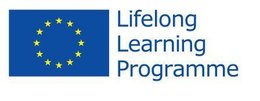Towards mastering the challenges of the international classroom: the IntlUni project concludes its work
The IntlUni Erasmus Academic Network led by Karen M Lauridsen, associate professor at Aarhus University, Denmark, has concluded its work with the publication of its final report at a celebratory conference in Brussels.
2015.10.01 |

IntlUni Introduction by Karen M. Lauridsen, IntlUni Coordinator, Aarhus University, DK

Panel 1: Higher Education Experts: Betty Leask and Jude Carroll

Panel 2: Higher Education Leaders. Chair Carmen Pérez Vidal, UPF, ES

Panel 3: European Associations: EUA, EURASHE, ENQA and ESU

IntlUni partner representatives - 38 partner institutions in 27 countries
The final report includes recommendations for addressing the opportunities and challenges of internationalization in European higher education. It is the culmination of three years’ work by 38 partners across 27 European countries.
On 24 September 2015, the IntlUni project held its final conference in Brussels, in the Salle des Miroirs of the Brussels Parliament. The event, Towards mastering the challenges of the international classroom, brought together over a 100 participants from the 38 partner universities, as well as external experts, higher education leaders and representatives from key European associations. The event saw the presentation and discussion of the project’s findings and captured the diversity and richness of the European higher education sector in the 21st century.
The event was opened by IntlUni Coordinator, Karen M Lauridsen, who gave an overview of the origins, rationale and methodology that led to project outcomes. The project started out by identifying challenges in the international classrooms across the IntlUni network, then progressed to capturing examples of effective practice across the partner network. Data analysis of this rich information set led to the formation of principles for addressing challenges in the international classroom and a set of recommendations for higher education institutions (HEIs), national/regional authorities and European actors. Karen M. Lauridsen noted that: “I have been struck by the sheer breadth of diversity across our IntlUni partner network. The project represents a microcosm of European higher education today. Our recommendations form a set of guidelines which can be negotiated and implemented within diverse local contexts. They map out pathways for improving the quality of existing learning spaces; they consolidate the continuity of effective classrooms, and they pave the way for other HEIs to engage with internationalization.”
Internationalization expert, professor Betty Leask from La Trobe University, Melbourne, Australia, gave a keynote presentation at the event, about her work on internationalizing the curriculum. Professor Leask’s work underpinned the conceptual framework of the project, and she formally responded to the project’s aims and findings, noting that “it has beena pleasure to watch this project from afar. Monocultural learning spaces don’t exist anymore, so this project is very relevant.”
Three panels of external experts convened in the afternoon sessions to discuss and comment on the project outcomes. Betty Leask was joined by educational development consultant Jude Carroll in the first panel, comprising higher education experts. The experts emphasised the importance of the project report in providing a “roadmap” for change and for providing help in addressing opposing voices within institutions.
The second panel of HE leaders included Rector Magnificus Elmer Sterken from Groningen University; Celio Conceicao from the University of the Algarve, and Dorothy Kelly from Granada University. The HE leaders noted that a “huge effort of synthesis has gone into this document. It is a comprehensive approach. It is going to be extremely useful at institutional level…it gives legitimacy to our discussions about internationalization and links quality to teaching and learning.”
The third panel included representatives from all the four major European associations: Monica Steinel (European University Association), Marc Vandewelle (European Association of Institutions of Higher Education), Paula Ranne (European Association for Quality Assurance) and Karolina Pietkiewicz (European Students Union). This panel promised to bring the document to policy discussions and work to lower barriers to the implementation of its ideas.
The conference concluded with final comments on impact and evaluation. Rapporteur and president of the European Language Council, Maurizio Viezzi, shared the sentiments of project partners by noting that “the IntlUni principles and recommendations, rather like internationalization itself, are not an end but a means to an end, requiring further and ongoing engagement both within and beyond the network”. For most project partners, the end of the project is only the beginning of an exciting journey towards consolidating and realizing effective international classrooms across Europe.
Useful links:
Weblink for the final report, including recommendations: http://intluni.eu/uploads/media/The_opportunities_and_challenges_of_the_MMLS_Final_report_sept_2015.pdf
Project website: www.intluni.eu
Programme for the conference available here
Contact for further information:
Mrs. Karen M. Lauridsen
Associate professor / IntlUni Coordinator (Erasmus Academic Network 2012-2015)
Centre for Teaching and Learning, Aarhus BSS, Aarhus University
Fuglesangs alle 4, Building 2621-B114, 8210 Aarhus V, Denmark.
Tel.: +45 8716 5105
Mobile: + 45 2443 8938
Mail: kml@au.dk
Ms. Mette Kastberg Lillemose
IntlUni Project Manager (Erasmus Academic Network 2012-2015)
Centre for Teaching and Learning, Aarhus BSS, Aarhus University
Fuglesangs alle 4, Building 2621-B128a, 8210 Aarhus V, Denmark.
Tel.: 8716 4738
Mail: mkl@au.dk


